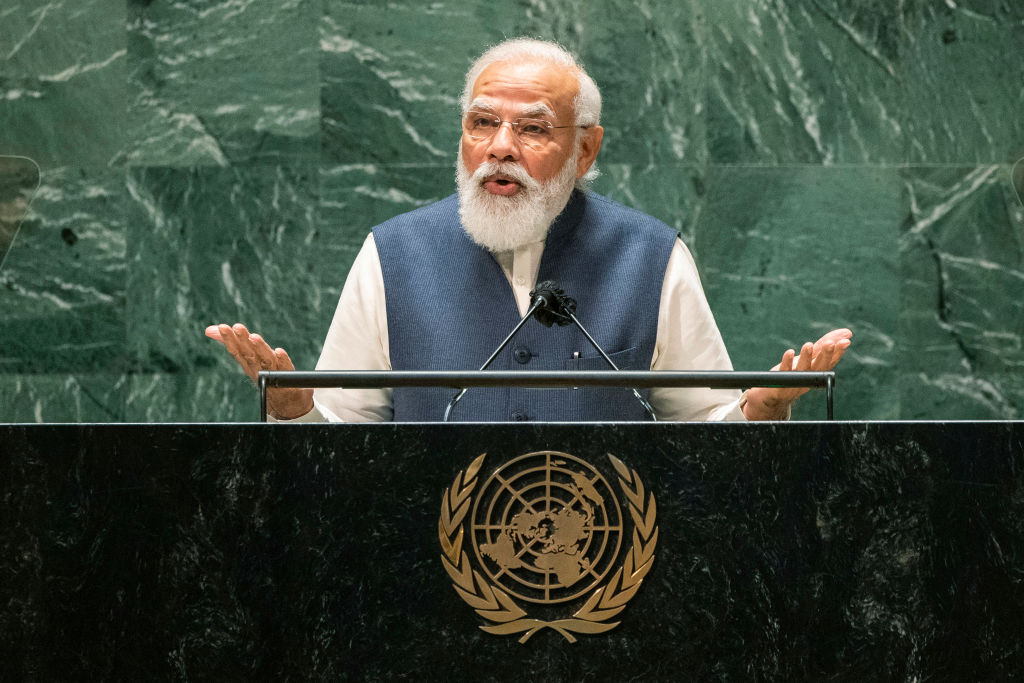- Thursday, February 20, 2025

By: PTI
INDIA , which is poised to become the world’s most populous country next year eclipsing its northern neighbour China, has lashed out at the United Nations (UN) General Assembly’s decision to roll over the Inter-Governmental Negotiations (IGN) on Security Council reform to the next session of the body, calling it a “wasted opportunity to instill a breath of life into a process that has shown no signs of life or growth in over four decades”.
The 193-member General Assembly on Tuesday adopted a draft oral decision on Security Council reform, rolling over the IGN process to the 77th session of the body that begins in September.
Chargé d’Affaires at the Permanent Mission of India to the UN, Ambassador R Ravindra, said India has been consistent in its position that the roll-over decision of the IGN simply cannot be reduced to a “mindless technical exercise.”
Russia ready to talk permanent UN Security Council seat for India, Moscow envoy says in China
“We see this technical roll-over decision as yet another wasted opportunity to instill a breath of life into a process that has shown no signs of life or growth in over four decades,” he said.
The envoy said that it is now apparent that in its “current form and modalities – that is, without application of the GA Rules of Procedure, without an official record of proceedings, and without a single negotiating text – the IGN could well go on for yet another 75 years without any progress whatsoever in the direction of genuine reform.”
India underlined that as a responsible and constructive member of the United Nations, it will continue to engage in this process alongside “our reform-minded partners, and persist with our efforts to move from repetitive speeches to text-based negotiations.”
New Delhi, however, cautioned that “for those of us who truly wish to fulfil our leaders’ commitment to early and comprehensive Security Council reforms, looking beyond the IGN may now provide the only viable pathway.”
The president of the 76th session of the UN General Assembly, Abdulla Shahid, said at the plenary meeting that the reform of the Security Council is “warranted and much delayed.”
“It’s been fifty-seven years since the last increase in the membership of the Security Council. The UN membership was then at 113. Today, the UN has 193 Member States, but the Security Council membership is frozen at fifteen, with no permanent representation for the entire African continent,” he said.
Pointing out that the IGN process is in its 14th year since it began, Shahid added, “We thus have a collective responsibility to demonstrate that the IGN is working and not let the process turn into a Sisyphean exercise.”
There are also other groups such as Uniting for Consensus (UfC), which includes Italy, South Korea, Turkey and Pakistan, and backs expanding the Security Council only in the non-permanent category and opposes increasing the Council’s permanent members and veto powers.
India has been at the forefront of the years-long efforts to reform the Security Council, saying it rightly deserves a place as a permanent member of the Council, which in its current form does not represent the geo-political realities of the 21st century.
The G4 nations of India, Brazil, Germany and Japan have reaffirmed that it is “indispensable” to reform the Security Council through an expansion in permanent and non-permanent seats to enable the UN organ to better deal with the “ever-complex and evolving challenges” to the maintenance of international peace and security.
The G4 nations have also voiced their strong determination to work towards launching text-based negotiations without further delay in the inter-governmental negotiations (IGN), on the basis of a single document, with a view to its adoption in the General Assembly.